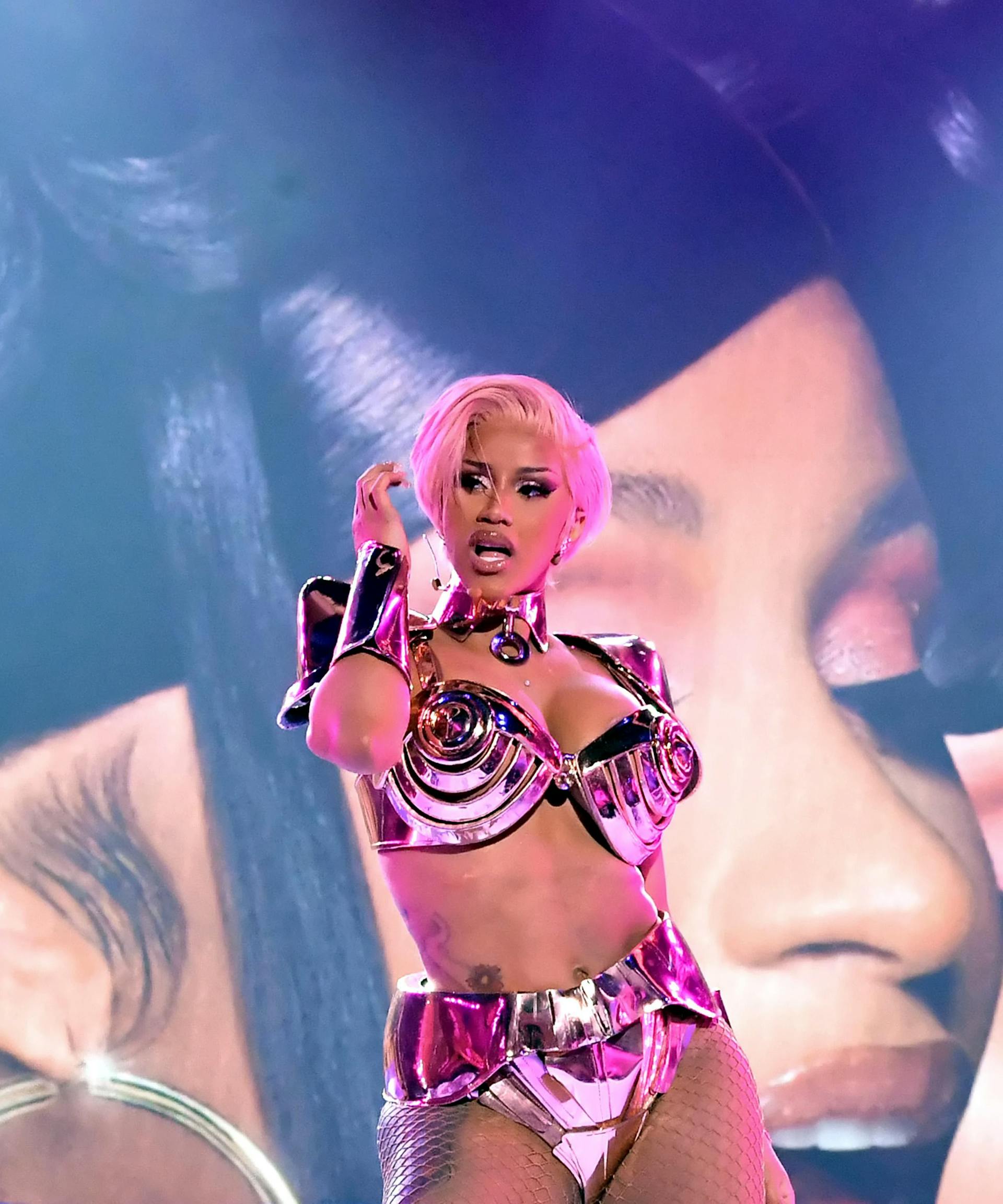Despite What Cardi B Thinks, Women Can Express Their Sexuality Without Being Trashy
Cardi B and Megan Thee Stallion’s new hit song and music video, “WAP,” has generated a lot of criticism.

Those who criticize the critiques of “WAP” blame men for being uncomfortable with women expressing their sexuality through music. This fails to acknowledge that the criticisms of the song are about its vulgarity and how it degrades women, reducing them to sex objects. As a matter of fact, women can express their sexuality without being vulgar.
Audrey Hepburn once said, “There is more to sex appeal than just measurements. I don't need a bedroom to prove my womanliness. I can convey just as much sex appeal picking apples off a tree or standing in the rain.”
"I don't need a bedroom to prove my womanliness." —Audrey Hepburn
Hepburn’s statement could not be more true, and it also illustrates how “WAP” fails at recognizing the complexities of female sexuality and femininity.
Female Sexuality in Music
Brittney McNamara of Teen Vogue argues that the criticism of WAP has nothing to do with the vulgarity of the song and video, but women expressing their sexuality in general. She argues that the song angered men because it goes against a patriarchal view of sex. She writes, “The fact that it makes men mad isn't a surprise, it's just proof of how far men have to grow before they recognize that women are neither waiting for them to validate our sexuality nor playing by their rules.”
I disagree with this statement, especially when it comes to women expressing their sexuality through music. Popular female artists often use sexually explicit lyrics like Beyonce’s "Drunk In Love" and Ariana Grande’s "Side to Side," but very few songs are as explicit as “WAP.” Don’t get me wrong, I think both Cardi B and Megan Thee Stallion are both very talented rappers (I may be a little biased because I’m a firm believer that Missy Elliot is the GOAT of female rappers), but the lyrics to "WAP" rely on vulgarity instead of creativity. Lyrics like, “spit in my mouth, look in my eyes, this p**** is wet, come take a dive” require little to no creativity.
Plenty of female musicians embrace and express their sexuality creatively and without being vulgar.
Plenty of female musicians embrace and express their sexuality creatively and without being vulgar. In her song "Dress," Taylor Swift sings, “I don’t want you like a best friend, only bought this dress so you could take it off.” In her song "RSVP," country-pop singer Maren Morris sings, “all you gots to bring is nothing, ‘cause I ain’t wearing nothing, nothing you can’t take off me.”
Last time I checked, nobody had a problem with Taylor Swift or Maren Morris (or Beyonce or Ariana Grande) expressing their sexuality. This is further proof that the criticism behind “WAP” isn’t simply about women expressing their sexuality in their music; it’s about the vulgarity of the song and the music video.
Women Are Worth More Than Their Sexuality
What I find the most troubling about “WAP” being called "the epitome of female empowerment" is that women are worth so much more than just their sexuality.
Unfortunately, many music critics see the song as a feminist anthem. Brianna Holt of Complex writes, “‘WAP’ is a prime example of progressive womanhood and modern femininity. The theme of women prioritizing pleasure and joy runs from start to finish. Liberation and power are showcased in the lyrics, placing the track as the duos’ most forward and compelling expression yet. Also, the song slaps.”
Women tend to focus their self-worth on their beauty and sex appeal, but this is often a recipe for low self-esteem and doesn’t focus on the wonderful qualities of femininity. Audrey Hepburn once said, “The beauty of a woman is not in a facial mode, but the true beauty in a woman is reflected in her soul. It is the caring that she lovingly gives, the passion that she shows. The beauty of a woman grows with the passing years.”
Focusing on sexuality as a mode of empowerment reduces women to sex objects.
Women are worth more than their beauty and sexuality. We are friends, mothers, sisters, wives, girlfriends, scientists, doctors, lawyers, writers, nurses, engineers, teachers, CEOs and so much more than what we bring to the bedroom.
Focusing on sexuality as a mode of empowerment reduces women to sex objects. It also denies the powerful traits of femininity, like empathy and vulnerability. It reduces femininity and womanhood to how sexually promiscuous we are, and I thought we were past that regressive way of thinking.
Closing Thoughts
The praise for “WAP” makes it seem like it’s empowering for women to degrade themselves. This couldn’t be further from the truth. Women have been writing about sexuality and romance for centuries (ever heard of Jane Austen or the Brontë sisters?) without resorting to being vulgar and degrading.
Though I’m sure there are some men in 2020 who are offended by women expressing their sexuality (and frankly, they’re the worst), the criticisms for “WAP” have nothing to do with that. The criticisms are about how the vulgarity of the song and music video reduces women to sex objects, and that’s not okay.